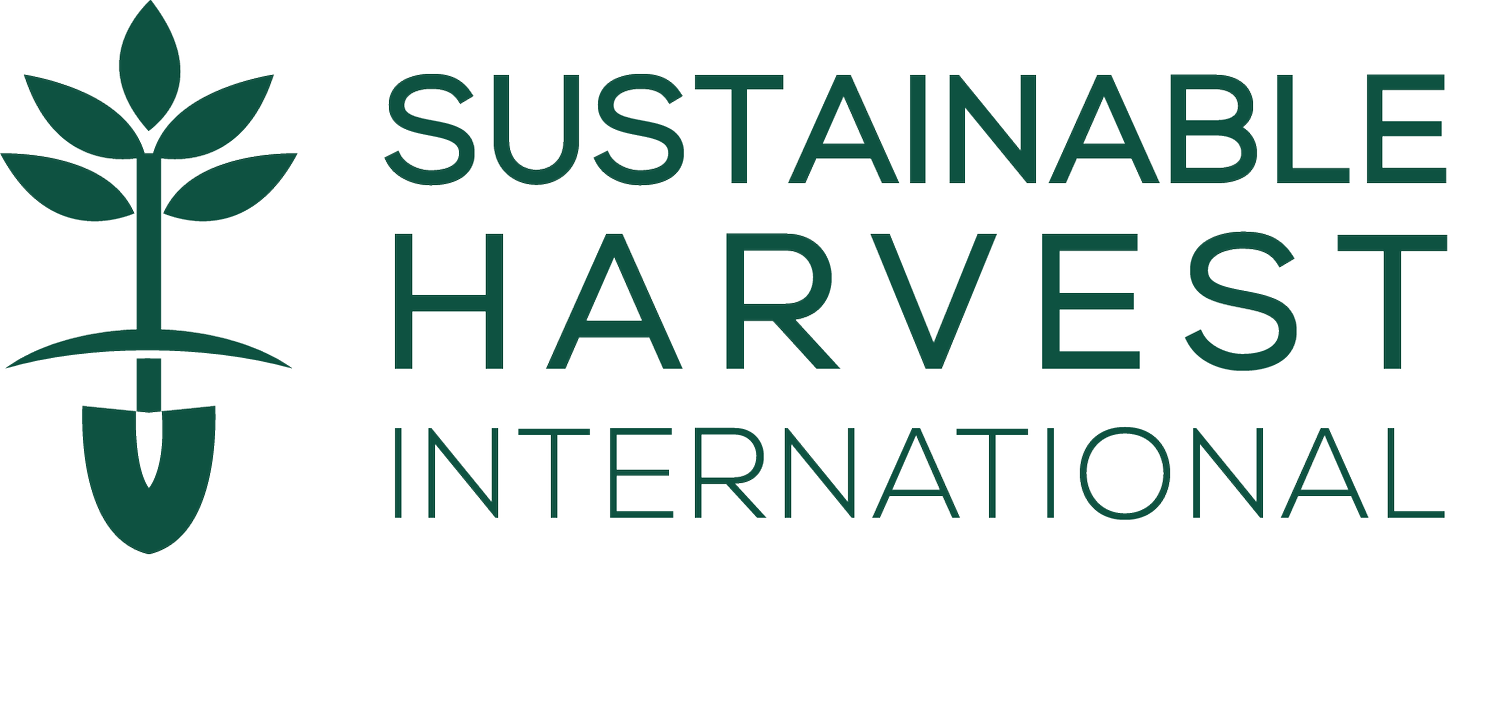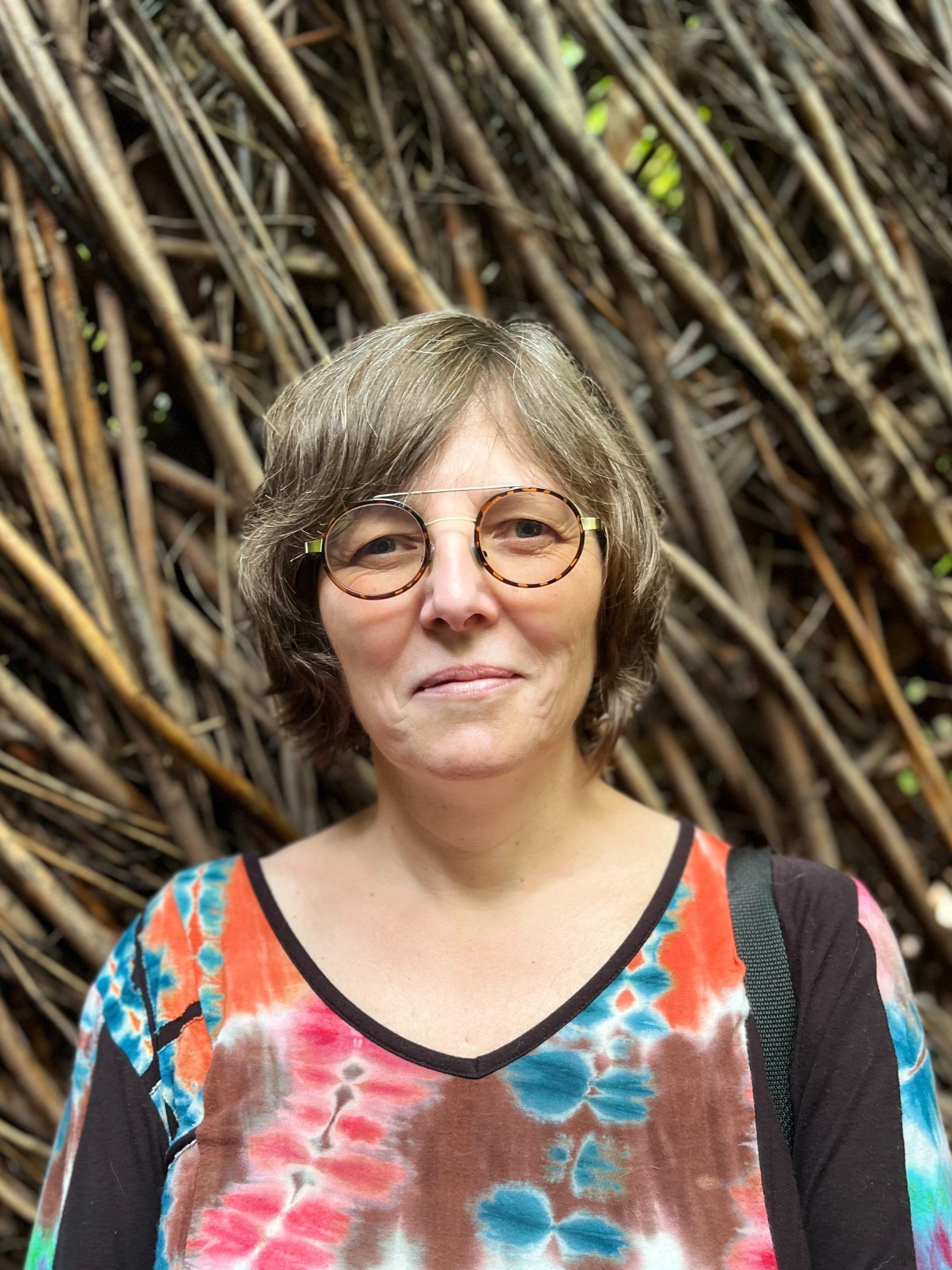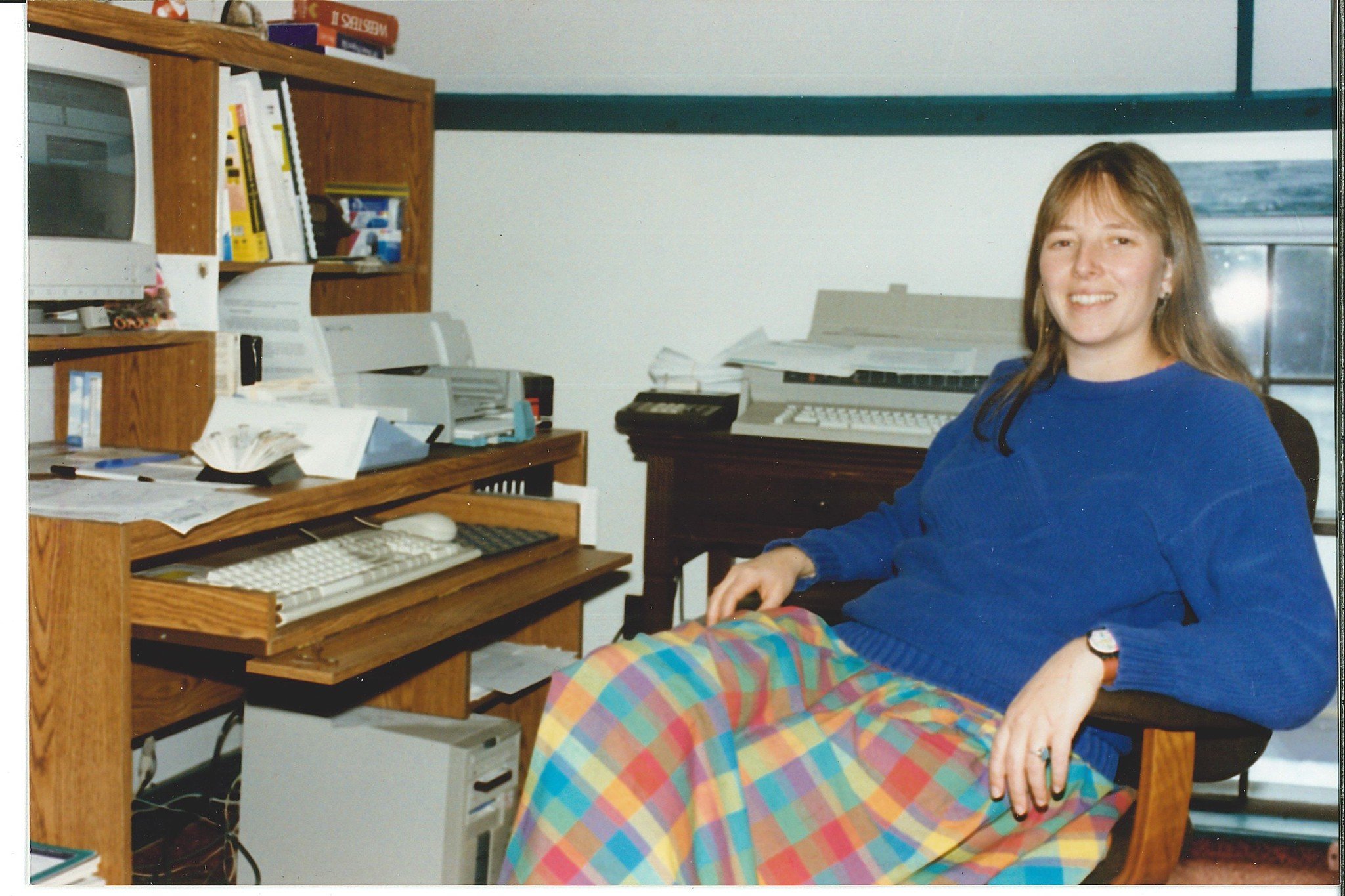florence reed
founder, director of strategic growth
Florence “Flo” Reed founded Sustainable Harvest International (SHI) in 1997 and has been a tireless advocate for the organization’s mission since. SHI is truly her life’s work, and her unwavering enthusiasm and conviction has inspired countless people across the globe to take action.
Flo is SHI’s chief visionary and networker. She currently serves as the Director of Strategic Growth where she leads SHI’s Million Farm Transformation, an audacious initiative to exponentially expand the impact of SHI’s work.
it all started with a forest
Like many of SHI’s influential volunteers, donors, and staff, Flo traces her environmental interests to her childhood. She loved the woods near her house and the plants and animals that called it home. Her family hiked and backpacked, and her parents donated money to the Bronx Zoo. As Flo grew older, she took note of the zoo’s focus on conservation and educating people on how humans impact wildlife.
Flo’s childhood experiences sparked her passion for preserving wildlife habitats. However, it wasn’t until high school and college that she opened her eyes to social justice issues. A series of church youth trips to repair homes in Appalachia brought her face to face with the marginalization of rural communities. Then, in college at the University of New Hampshire, Flo’s real commitment to social justice issues took off. She learned how US foreign policy negatively impacts people worldwide. She met Central American refugees and got involved with a campus committee on Central America. It was during her college years that she first traveled to Central America.
Never one to shy away from hard work, Flo founded the first environmental group at her college and had a dual major in environmental conservation and international affairs by the time she was 21 years old.
“One of the bigger picture lessons for me was learning the importance of community and how we are all connected,” Flo says of all her early, formative experiences.
Since she was a kid, she always felt an internal urge to help others (all species, including humans) have everything they needed. She cites Nelson Mandela and Jane Goodall as early role models. Their absolute commitment and dedication to justice has been a source of inspiration throughout the years.
SHI’s beginnings
After college, Flo served as an agroforestry Peace Corps Volunteer in Panama. There, she really witnessed the devastating impact of deforestation on rural livelihoods. But she also saw that, if given adequate training, small-scale farmers welcomed sustainable practices that restored their land while providing for their families.
Flo in SHI’s first “office,” the spare room of her parents’ home in New Hampshire.
During her time in the Peace Corps, she learned that environmental degradation and poverty fueled one another, but that there was a way to break the cycle. Those lessons were the seeds that would give life to Sustainable Harvest International.
Flo frequently writes and speaks about how our global food system “sickens, oppresses, and exploits.” She often asks, “Doesn’t it seem very wrong not only that there’s still hunger in this world, but also that most of the world’s hungry are in farming communities?” In her straightforward and compelling way, Flo has been working to illuminate some of the many injustices that face humanity. What’s her hope? That we can all be called to action.
Flo planting trees in the Toledo District of Belize in the 1990s.
When Flo returned to the United States, she was determined to help create positive change for people and the planet. She split her time between the United States and Central America, working tirelessly to raise awareness and build a network of funders and program partners.
Looking back at those early years, Flo’s still stunned by how much they were able to achieve while communicating internationally, all without the benefit of modern technology like laptop computers, cellphones, or the internet.
“SHI’s work with the farmers has become more impactful because our systems have stronger monitoring and evaluation components, and we have the right people to put improvements into place.”
Watching a family achieve their dreams
Isabel on his farm in Bella Florida, Panama in 2009.
Over the years, Flo has amassed countless stories about helping farmers and the environment, but there’s one farmer, Isabel Rodríguez, and his family she still thinks of frequently. Isabel lives in Panama and was an early part of SHI’s program. He and his wife Nelly had a strong desire to earn enough money so their daughters could some day attend high school.
When Flo visited years later, she was heartened to see new crops growing, improvements in soil health, and farming and nature coexisting. “They had multi-story coffee growing under the shade of hardwood and fruit trees, and it looked like a natural forest,” Flo recalls. She was so happy to see these changes in their land, and she was heartened to learn their daughter was now in college. As it turned out, Isabel’s dreams of helping his daughter get an education exceeded his expectations.
Flo still recalls seeing a flock of parakeets fly overhead and land on one of the farm’s tall trees. For Flo, this moment was a “reminder of how all life on this beautiful planet benefits from the healthy ecosystem on Isabel’s farm.”
“They had multi-story coffee growing under the shade of hardwood and fruit trees, and it looked like a natural forest.”
Hope for the future
Flo is already thinking about SHI at 50 years. “I’m excited to see SHI embrace its Million Farm Transformation scaling plan by partnering strategically,” Flo says. On an even bigger scale, though, she says, “I’m hoping the world will continue to embrace this work and shift our food system to one based in smallholder farms that regenerate and restore the environment and provide an abundance of food for everybody, but particularly for those in the communities that produce the food.”
Flo understands why people feel pessimistic about the future but vehemently believes she must choose optimism. “First of all, I don’t have the bandwidth to spend much time worrying,” she explains. “I need to focus on what we can do, and there’s so much we can do to turn things around and build a better world.”
“Everybody can live a thoughtful life where they think broadly about what their everyday decisions, big or small, mean not just for themselves but for our world. Everybody can be open to opportunities that make things better.”
What does this look like for Flo? There are almost too many ways to list. “For the people thinking about how they can move the needle, there are many ways to make a difference collectively. People might buy organic or locally-grown food or grow it themselves. We can burn less fossil fuels in our homes and vehicles. Look at how you spend your money. Do we spend it all on ourselves, or do we donate to make the world better?” she asks. “And just think,” Flo continues, “every day, we have thousands of opportunities to choose something that makes the world a little better.”






